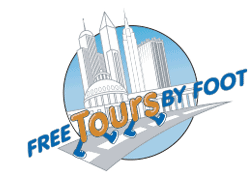This post will cover some of the most common questions visitors have when coming to London and provide tips for staying safe during your visit.
- Is London Dangerous?
- Safety Tips
- Is It Safe to Walk Around London at Night?
- Which Areas Are Safe?
- Is Brixton Safe to Visit?
- Things to Do in London
How Dangerous is London?
London is a very safe city.
However, just like any capital, crime does exist and it’s always best to take extra caution and be prepared when you come to town.
The majority of crime in London is opportunistic so as long as you don’t appear to be a target – you will likely not become one!
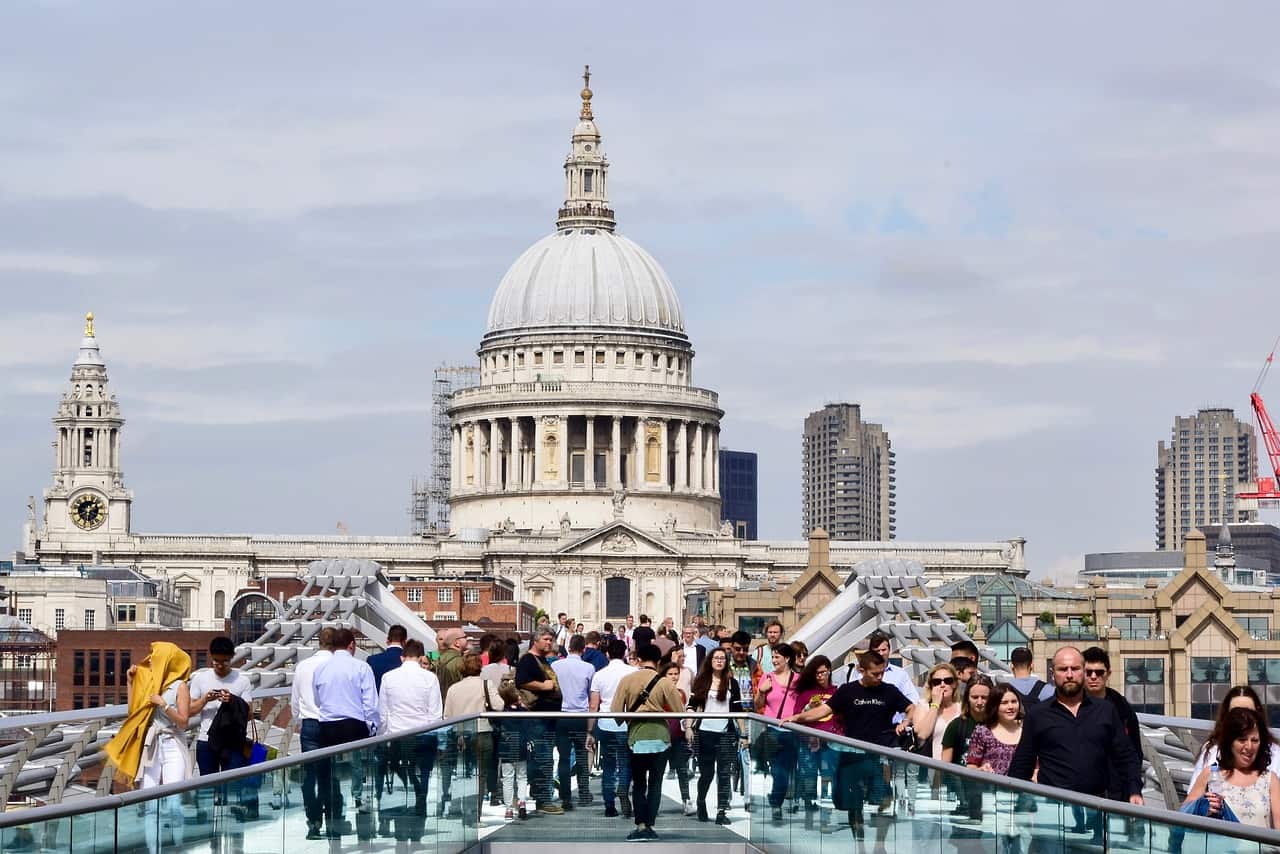
When violent crime does occur, it usually takes place in neighbourhoods that tourists wouldn't visit.
Is it Safe to Visit?
Yes! As far as large cities go, London is incredibly safe. During the day, the most common crime in London is pickpocketing - like most other European capitals.
At night, most areas in the centre of town are well-lit and public transport runs 24 hours a day to get you home safely.
You will notice a police presence in London and the Met police force are friendly, helpful, and approachable in general.
Women traveling alone are also safer in London than in many other world capitals.
Safety Tips in London
Travel:
- Never accept rides on bicycle pedicabs.
- Keep to well-lit main roads when walking at night.
- If you are travelling alone on a bus at night – sit downstairs.
- It seems obvious but take care when crossing the street – we drive on the left here!
- Do not wear headphones when travelling alone as this will prevent you from being aware of your surroundings.
- Plan your journeys ahead of time, if possible. Know where you are going and which stop you will need. (Check www.tfl.gov.uk to plan your trips!)
- Only use registered minicabs or black cabs – never get into an unmarked or unregistered vehicle and never accept a journey from a driver off the street. Only black cabs are allowed to pick up travelers on the street.
- Solo travellers should definitely consider exploring the city with a tour group! We have a wide variety of tours that explore many of London's various neighbourhoods - and all in a controlled and safe environment. See what's on when you visit HERE.
Belongings:
- Do not tuck your phone into your back pocket!
- Keep things like money, wallets, phones, etc. out of sight.
- Keep your wallet close to your body, and valuables on your person when possible.
- Never leave your bags unattended anywhere in London – this can lead to security alerts.
- Don't stand on the edge of the pavement and use your phone - thieves on mopeds or bicycles can ride past and snatch it from your hands!
- When carrying your bag, tuck it under your arm, or if you have a longer strap, cross it over your chest and one shoulder.
- If a stranger on the street asks you for directions or the time, be extra aware of your belongings while you answer (particularly your phone and wallet).
- Always keep a separate bit of cash somewhere else on you so, even if you are a victim of crime, you will always have enough money to get back to your home/hotel.
In Bars, Pubs, and Restaurants:
- Don't leave your drink unattended.
- Don't accept drinks from strangers you have not witnessed being made/poured. Keep your property underneath the table or out of sight - many locations have bag clips underneath bars/tables - hang your bags there if you can.
Is it Safe to Walk Around London At Night?
London is generally a safe city - even at night. Almost all of central London is well-lit and you'll very rarely find yourself alone as it's a 24-hour city.
Public transport runs 24 hours a day, too, so it's easy to get around even after dark.
The only parts of London that you should consider avoiding at night are the parks as they are not technically open after the sun sets and they tend not to be lit at night.
However, many of the royal parks are fenced off with gates locked after dark, anyway.
Of course, it's always worth keeping your wits about you and an eye on your bag and/or phone but, in general, central London is perfectly safe at night.
Which Areas of London are Safe?
As mentioned, most violent crime in London takes place in areas you will likely not visit.
The safest areas in town tend to be the ones most visited by tourists.
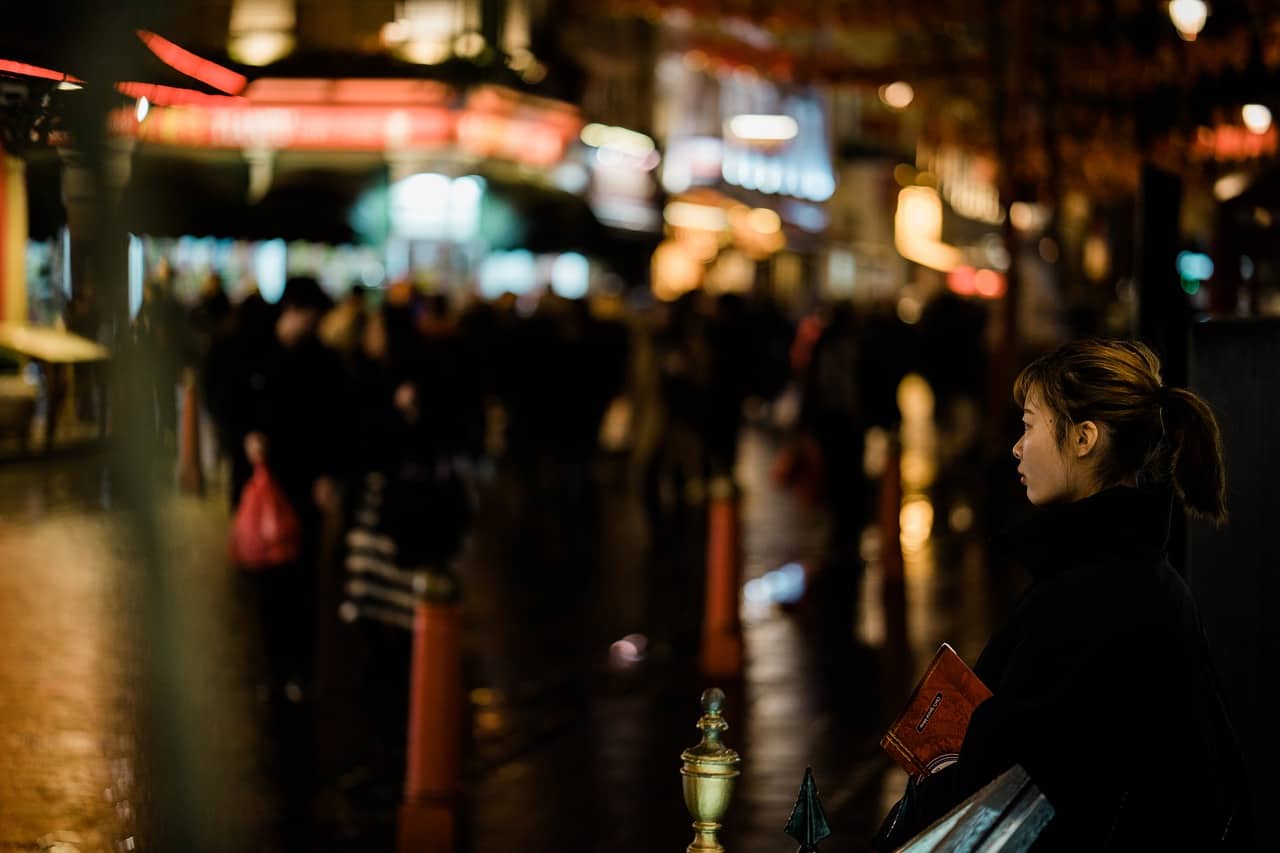
Safe Areas:
- Canary Wharf - Out to the East this is London's newest financial district and is full of skyscrapers and riverside apartments.
- The City of London - Part of "old" London, today this is the city's business and financial district. It's a vibrant hub during the day but empties out on nights and weekends. We recommend checking it out with us on our City of London Tour!
- Islington - Islington is a charming neighbourhood in the north of the city. A great place to stay, drink and dine.
- Kensington and Chelsea - Full of beautiful homes, boutique shops, and beautiful parks and gardens. Consider exploring Kensington with us on our Royal Kensington Tour.
- King's Cross - A newly refurbished area, King's Cross is home to great restaurants, accommodation, and the best-connected Underground Station in the city.
- Knightsbridge - Knightsbridge is on the edge of Hyde Park and where you will find the iconic Harrod's department store.
- Mayfair - Mayfair is home to posh shops, Bond Street, and some of the most expensive properties in the city. Discover it yourself with our Mayfair: Tiaras and Ferraris Walking Tour.
- The Southbank - This part of London runs along the River Thames and is filled with beautiful views and vibrant nightlife. Here you'll find things like the Globe Theatre, Tate Modern, and the iconic Tower Bridge. If this sounds up your street, sign up to our Sunday Southbank Stroll or, in the spring/summer/autumn, join our Night Tour that takes in all the lights of the buildings along the river.
- Westminster - This is where most of the "big" tourist sites are like Buckingham Palace, Big Ben, Trafalgar Square, etc. To really make the most of this neighborhood, consider joining our Royal Westminster Tour!
Other Areas That Are Not Dangerous But Where You Should Mind Your Belongings:
- Camden - Camden is known for its extensive and eclectic markets, as well as pubs and live-music venues. It's a great place for daytime shopping and nighttime entertainment.
- Clapham Junction - Clapham Junction is home to the UK's busiest rail station and this residential neighbourhood is booming with dozens of excellent restaurants, pubs, and bars.
- Covent Garden - In London's West End, Covent Garden is home to a covered market, stunning shops, and numerous theatres. Make the most of your time here by coming on our Covent Garden and the West End Walking Tour!
- Elephant and Castle - Undergoing a huge regeneration scheme (for better or for worse) Elephant and Castle is primarily residential and known for its' former markets which have been replaced by a shopping centre.
- Finsbury Park - This North London neighbourhood is next to the Emirate's stadium and is host to concerts and festivals throughout the year.
- Hackney - Home of the "hipsters," Hackney is slowly gentrifying but still holds onto its' independent shops, bars, and restaurants.
- Leicester Square - The heart of the West End, Leicester Square is home to film premieres, festivals, and Christmas markets. It's also where London's TKTS booth is for discount theatre tickets.
- Shoreditch (only some parts) - A true London melting pot, Shoreditch is home to some of the finest street art in the world, as well as Brick Lane, also known as the "Curry Mile." There are covered markets, street markets, street food, history and so much more here so think about letting us share it with you on our Graffiti and Street Art and East End Food Tours.
- Waterloo - Waterloo is a transport hub on the edge of the Southbank and is largely residential.
- Wapping - Part of London's Docklands, Wapping has undergone a transformation from warehouses to luxury apartments - but the historical pubs still remain such as the Prospect of Whitby.
- Wimbledon - Famous for the Tennis Club, Wimbledon is a mix of business, residential, and retail. A beautiful common to walk through, excellent shopping, and a variety of restaurants make it worth a visit even when the tennis isn't on. Consider exploring the area with us on our Quintessential Wimbledon Tour.
Areas to Avoid
The following are residential areas that you will likely not visit but are worth remembering when it comes to booking accommodation - particularly Air B&Bs!
- Camberwell
- Lewisham
- Peckham
- Tottenham (if not attending a sporting event)
- Wood Green
Is Brixton Safe?
On London's south side, Brixton is home to a thriving Afro-Caribbean community, long-standing markets, street art, and music venues.
In the past few years, Brixton's incredible culture, delicious food, and world-class street art have made this area a hot spot for London visitors.
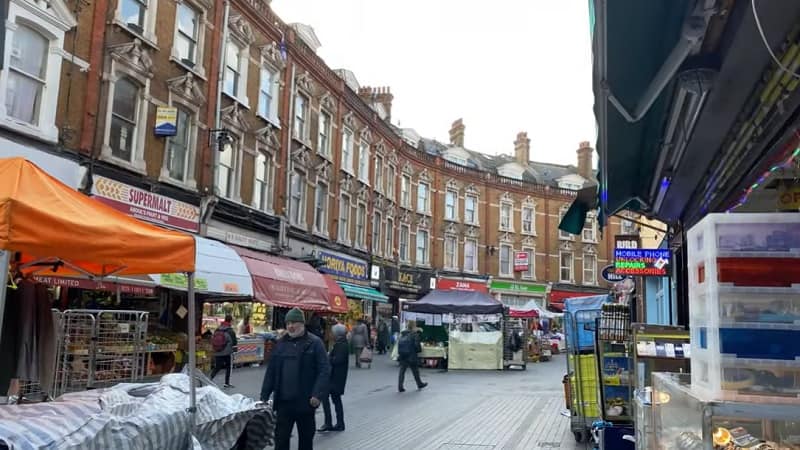
You may find when researching the area, that Brixton has higher levels of crime than some areas in the city and, while this is broadly true, it doesn't necessarily apply to the entire district.
Crime levels tend to be higher on the council estates deeper into the district, which you likely won't be visiting.
Provided you stick to public transport routes, keep an eye on your belongings, and explore public areas, it's highly unlikely you will experience any crime while in Brixton.
You will find several markets and music venues in Brixton (which are almost always busy), and there is an Underground station on the Victoria line which provides safe and easy access to the area.
There are also decent bus routes to get you in and out. Plenty of people live in, work in, and visit Brixton regularly without ever encountering any issues.
Want to check it out for yourself? Come explore it with us on our Brixton Street Art and Culture Tour.
Do I Need to Carry a Knife or Pepper Spray in London?
In some countries, it is common practice for people to carry a knife (this includes Swiss arms knives), but many blades are illegal in London.
Check https://www.gov.uk/find-out-if-i-can-buy-or-carry-a-knife before you travel to avoid arrest, imprisonment, or fines.
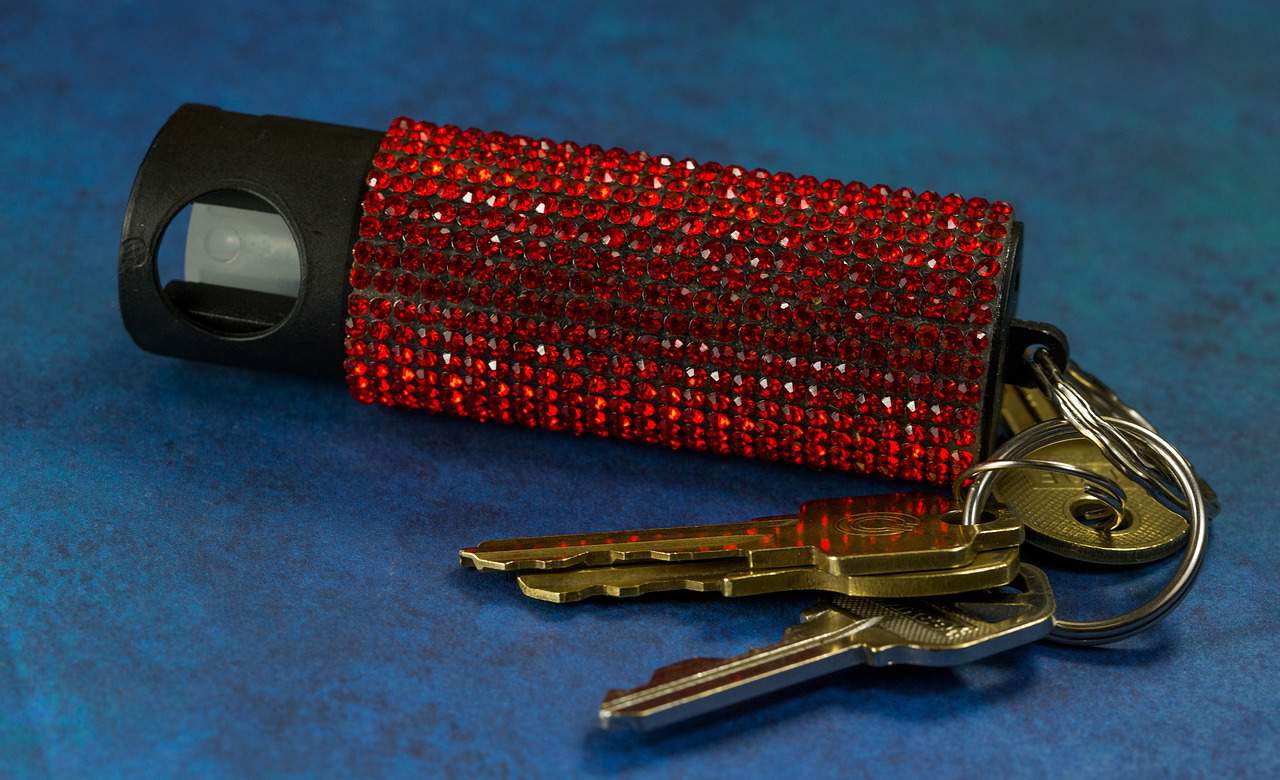
Pepper spray is illegal in the UK. Having pepper spray on your person subjects you to the same legal punishments as carrying a gun.
How to Contact Emergency Services
To reach Emergency Services dial 999 or 112 (only in case of a REAL emergency)
To report non-urgent crime, contact a local police station (find your nearest one here) or dial 101.
